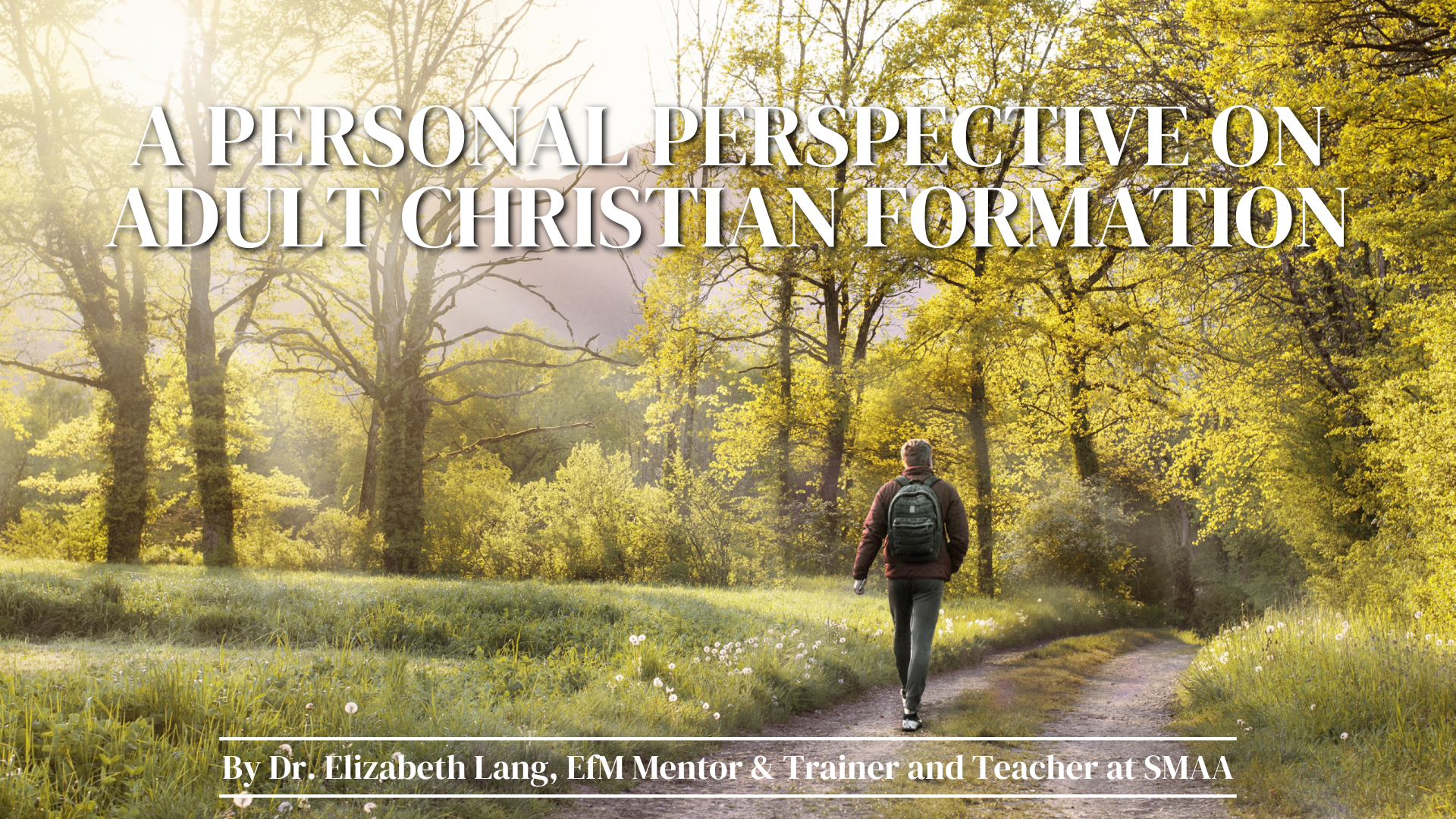
When I moved to Texas decades ago, Saint Michael and All Angels took care of me. I was mourning the loss of a position where I oversaw Christian education. The persons in spiritual formation at SMAA made all the difference through welcoming me. They provided opportunities to join small groups and to teach. This parish has a strong tradition of Christian formation, and it has been my joy to participate in this ministry. To let you know the significance of Saint Michael’s heritage, let me share my perspective on Christian formation.
My understanding depends on experience and the theology of the sacrament of baptism. We may baptize infants, but the intentions, vows and promises of baptism summon persons to grow into a mature Christian faith and life. Adult Christian formation is the spiritual journey that flows from the water and Spirit of baptism. In the Episcopal Church, intellect is necessary but not sufficient. We also require the beauty of holiness through worship and prayer. Through community, education, and liturgy we seek and find divine presence. I can’t explain how bread and wine convey the real presence, but I know that a filled chalice does not signify a real absence.
The Bible also influences my understanding of adult Christian formation. At his baptism, Jesus heard, “You are my Son, the Beloved, with you I am well pleased.” Immediately after Jesus was baptized, the Holy Spirit drove Jesus into the wilderness to face temptation. Since the devil was fond of saying, “If you are the Son of God...,” I see Jesus facing two fundamental questions: Who am I? Whose am I?
I understand that you and I are not the Son of God or divine. Through adoption, we have become children of God. Secure in God’s love, we can face our sins and repent. The Incarnation states that Jesus is fully human and fully divine. Jesus shows us what it is to be fully human. So, I believe that we deal with the same issues that Jesus faced. The ministry of adult Christian formation helps us to address these as we mature in faith: Who am I? Whose am I?
Who am I?
I am a child of God; I am part of the people of God. To understand what these beliefs mean, we need to find our identity both within
Christian tradition and through Scripture and self-knowledge. Thus, at Saint Michael there are numerous opportunities to learn about Scripture, doctrine, history, and theology. Our heritage helps to define who we are. The church also offers courses which enhance our understanding of ourselves. We discover ways to serve our community and/or our church. We are persons traveling along “the Way”—a spiritual path moving toward more complete redemption, living into the image of God, and growing into the likeness of Christ (BCP, p.852). Since none of us finishes this journey in this life, I believe that there is life after death.
Whose am I?
This question presumes that there is a relationship between the divine and the human. I belong to God who transcends the cosmos and is as close as my breath. I can’t answer this question without knowing about God. I am so glad that the Episcopal Church encourages its people to use their intellect. Through studying Scripture, learning theology, and participating in liturgy we learn about God. There are numerous lectures and study groups which increase our knowledge about God at Saint Michael.
But I am not satisfied with learning about God. I want to know God. Perhaps my personal example will clarify what I mean. A priest, Patty Willet, who was formerly on staff at Saint Michael, was leading a class in which she asked us, “What is your image of God?” She doubled over in delighted laughter when she heard my answer (though some other participants looked at me as though I had sprouted 3 heads). I said that my image of God was an absent lover who sent fabulous letters. “Lover,” highlights intimacy. “Fabulous letters,” those are God’s ways of communicating particularly through scripture, through the beauty of holiness, through music, architecture, literature, and the arts, through people, through prayer. The Episcopal Church opens those letters through its comfort with myth, symbol, paradox, and mystery. But what about “absent?’” Absence conveys mystery. Especially, it testifies to my yearning for God. Desire is at the root of spiritual pilgrimage. Our hearts are restless until we find our rest in God. I am thankful that there are offerings in adult formation that honor this kind of desire and seeking.
I know that there are numerous “styles” of faith. For example, some people start with faith and move to questioning; some people start with questioning and arrive at faith. God initiates these quests and responds within them. Fortunately, Saint Michael offers classes that support diverse ways to travel on the road of faith. To switch metaphors: We hunger for God; so, choose what nourishes, refreshes, and delights you.
**This article was written by Dr. Elizabeth Lang and was featured in the 2023 Fall Archangel.
Tags: Blog & Newsroom / Featured Parish Stories / Fall 2023 at Saint Michael and All Angels
